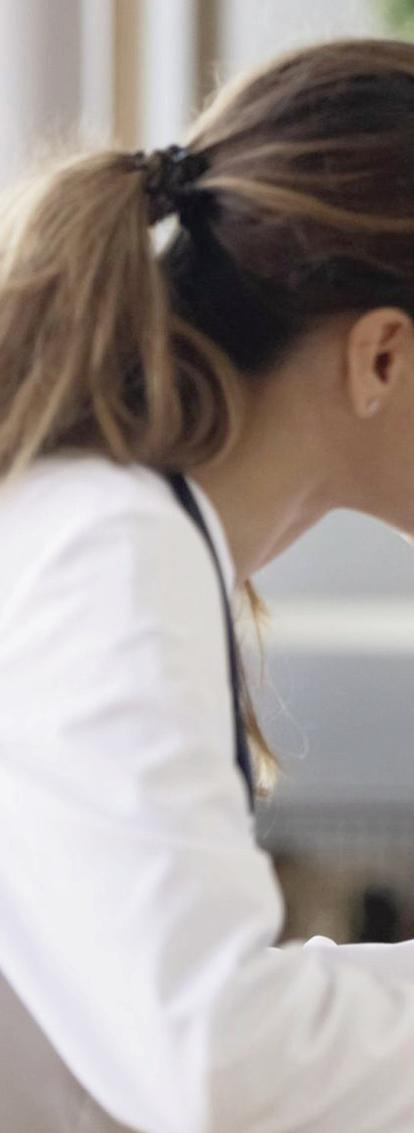
FALLING SHORT: 14 million children in the US are children and youth with special health care needs, making up 19.5% of children under 18. Less than 1 in 7 CYSHCN receive healthcare in a wellfunctioning system.
project activities create better outcomes for children with special health care needs. Families and self-advocates with disabilities are involved across all activities, and share their experiences to help create systemic change nationally.
HOW WILL THIS HELP FAMILIES AND PEOPLE WITH DISABILITIES?
People with disabilities, including youth and their families, partner with family-serving organizations including the F2Fs, other family organizations, and state and local MCH agencies (see Resources). As F2Fs, Title V programs, and others improve at reaching and engaging diverse parents and youth/young adults, these voices will help point out the strengths and challenges of existing systems, policies, and procedures, and plan for systemic improvements.
WHAT ARE FAMILY-TO-FAMILY HEALTH INFORMATION CENTERS (F2FS)?
F2Fs are led by families and help support other parents of children and youth with special health care needs. In each state and territory, the center is staffed by knowledgeable families who have lived experience of the challenges faced by children with special health care needs and their families. F2Fs are uniquely qualified to support other families caring for children with special health care needs, because their staff can offer peer-to-peer support. This is especially true for families with children who have medical complexity or are from underserved communities. This project will involve diverse families and youth "in direct patient care, organizational design, and governance."
WHAT IS THE BLUEPRINT FOR CHANGE?
FELSC, the technical assistance center for the F2Fs, is guided by the Maternal/Child Health Bureau Blueprint for Change: Guiding Principles for a System of Services for CYSHCN. The Blueprint focuses on key areas affecting children and youth with special health care needs and their families. These include:
- Health equity: Ensuring everyone gets equitable care that meets their needs.
- Quality of life and well-being: Wellness and quality of life aren't often thought of in relation to disabilities.
- Access to services: All families can access the health care and other related supports that they need.
- Financing of services: Children with special healthcare needs can access healthcare that is affordable.
By involving families of children with special health care needs and their families, meaningful improvement can be made in the areas of health care equity, wellness, access, and affordability. •
SELF-ADVOCACY RESOURCES
FAMILY ENGAGEMENT AND LEADERSHIP IN SYSTEMS OF CARE (FELSC)
FAMILY-TO-FAMILY HEALTH INFORMATION CENTERS (F2FS)
familyvoices.org/felsc/whataref2fs
MATERNAL/CHILD HEALTH BUREAU (MCHB) BLUEPRINT
SPAN PARENT ADVOCACY NETWORK
ABOUT THE AUTHOR:

Lauren Agoratus, M.A. is the NJ Coordinator for Family Voices, NJ Regional Coordinator for the Family-toFamily Health Information Center, and Product Development Coordinator for RAISE (Resources for Advocacy, Independence, Self-Determination, and Employment). She also serves as NJ representative for the Caregiver Community Action Network as a volunteer. Nationally, Lauren has served on the Center for Dignity in Healthcare for People with Disabilities transplant committee (antidiscrimination), Center for Health Care Strategies Medicaid Workgroup on Family Engagement, Family Advisor for Children & Youth with Special Health Care Needs National Research Network, National Quality Forum-Pediatric Measures Steering Committee, and Population Health for Children with Medical Complexity Project-UCLA. She has written blogs and articles nationally, including publications in two academic journals (pubmed.ncbi.nlm.nih.gov/?term=agoratus+l). Lauren was named a Hero Advocate by Exceptional Parent Magazine (epmagazine.com) Archives June 2022.